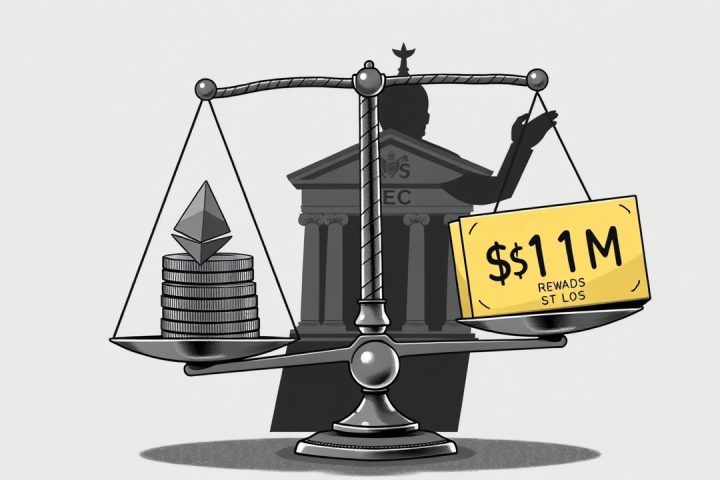Coinbase’s Lobbying Against Stablecoin Legislation
In a surprising move, Coinbase, the leading name in the cryptocurrency sphere, is actively lobbying against upcoming stablecoin legislation, a decision that is stirring controversy within the cryptocurrency policy community. This legislation, which aims to provide clarity and legitimacy to stablecoin issuers—digital assets typically tied to the U.S. dollar—has been viewed as a crucial step towards integrating cryptocurrencies with traditional financial systems.
The Current Legislative Landscape
Currently, bills that address stablecoins have gained traction in Congress, heading toward potential floor votes following favorable reviews by key committees in both the House and Senate. Stablecoins play a vital role in facilitating cryptocurrency trading by enabling swift transitions between crypto assets and traditional currencies without directly accessing fiat dollars.
Legislators are under pressure to push these bills through, with the Senate planning to bring forward the GENIUS Act for a full vote shortly, within the next two weeks. Once passed by both legislative chambers, the bills would then be sent to President Donald Trump, who has expressed enthusiasm for signing such legislation into law.
Coinbase’s Strategic Push
Despite the optimistic momentum surrounding the stablecoin bills, Coinbase is engaged in a strategic push to delay their passage. This effort is backed by prominent venture capital firm Andreessen Horowitz, both of which are concerned that Congress may not possess the bandwidth to handle multiple cryptocurrency votes. Their strategy hinges upon the concurrent approval of a broader market structure bill, dubbed ‘FIT21’, intended to legislate the wider cryptocurrency market.
Coinbase executives fear that advancing the stablecoin bill without first addressing the market structure legislation may diminish the chances of successfully passing both.
“There’s a concern that if we solely focus on stablecoin, it could dilute the political enthusiasm needed to pass the market structure bill that is crucial for our operations,”
remarked a source privy to the company’s strategies.
Legal Pressures and Industry Reaction
Amid these deliberations, Coinbase faces mounting legal pressures as new lawsuits concerning alleged securities violations loom over the company. Even though previous federal charges from the SEC under the Trump administration were dismissed, emerging state-level suits have reignited the spotlight on Coinbase’s regulatory challenges. This situation has heightened the urgency for the company to see market structure laws enacted, which would address the legal status of many cryptocurrency assets.
Official representatives from Coinbase maintain that they are not obstructing stablecoin legislation, but suggest that consolidating both legislative efforts into one comprehensive bill would enhance efficiency.
“Achieving clarity in crypto regulations benefits the industry as a whole,”
stated Kara Calvert, Coinbase’s VP of U.S. Policy, likening the necessity of passing market structure laws alongside stablecoin regulations to two sides of the same coin.
Community Response and Future Outlook
Meanwhile, the reaction to Coinbase’s strategy among other industry stakeholders has been one of confusion and frustration. Many within the crypto community argue that there is a unique opportunity to enact pro-crypto laws now and that passing stablecoin legislation could generate positive momentum for subsequent legislative efforts. Concerns also persist that global events, from international tensions to looming economic downturns, could distract Congress from crypto policy discussions if significant action is delayed.
The polarization of viewpoints between Coinbase and a large portion of the crypto industry has led to a contentious atmosphere in Washington, D.C. Organizations such as the Digital Chamber, a notable crypto lobbying entity, are mobilizing to advocate for the immediate passage of stablecoin regulations, countering the stance of Coinbase and its allies. Their CEO declared the importance of seizing the moment to secure a bipartisan victory for cryptocurrency before the opportunity slips away to international actors.
As the deadline approaches for floor votes on the hotly contested stablecoin legislation, the divide within the industry underscores a critical moment in the evolving landscape of cryptocurrency regulation in the United States.

















